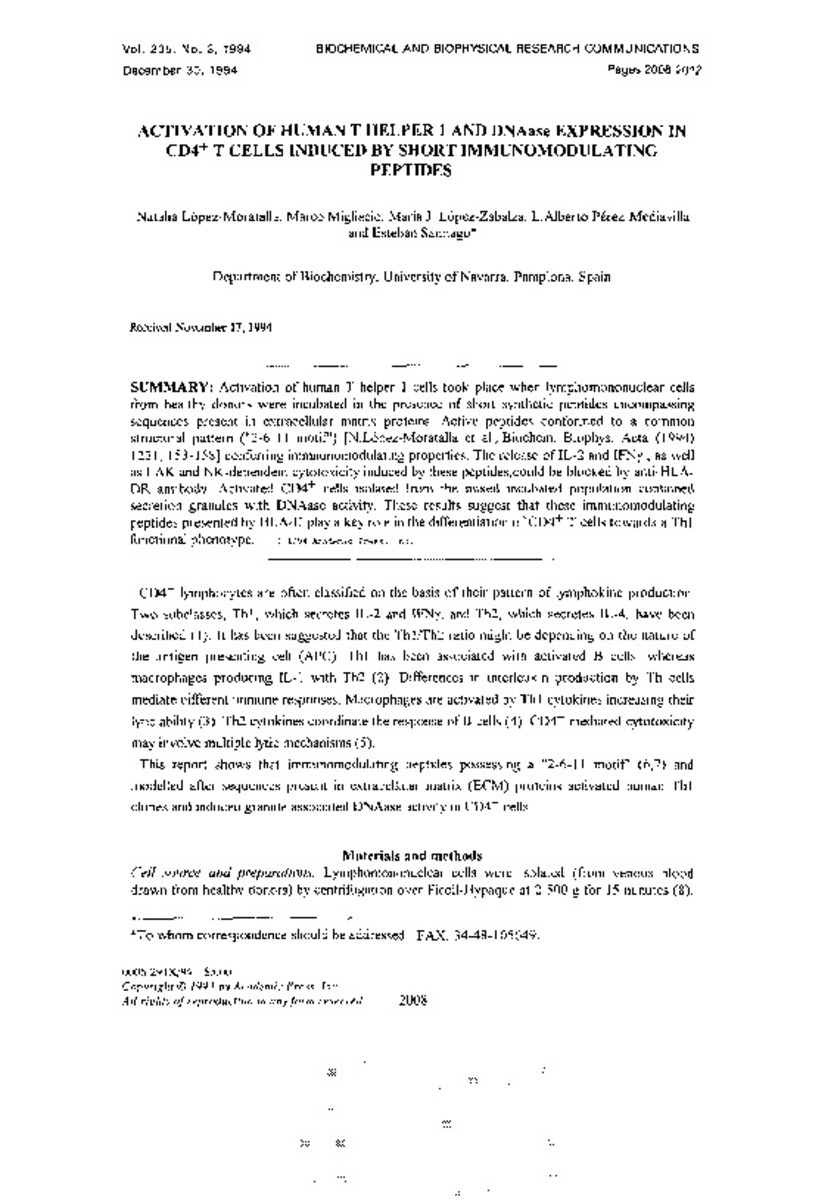Activation of human T helper 1 and DNAase expression in CD4+ T cells induced by short immunomodulating peptides.
Keywords:
CD4-Positive T-Lymphocytes/drug effects
Deoxyribonucleases/biosynthesis
Peptides/pharmacology
Th1 Cells/drug effects
Adjuvants, Immunologic
Citation:
Lopez-Moratalla N, Migliacio M, Lopez-Zabalza MJ, Perez-Mediavilla A, Santiago E. Activation of human T helper 1 and DNAase expression in CD4+ T cells induced by short immunomodulating peptides. Biochem Biophys Res Commun,1994 Dec 30;205(3):2008-2012.
Statistics and impact
0 citas en

Items in Dadun are protected by copyright, with all rights reserved, unless otherwise indicated.







